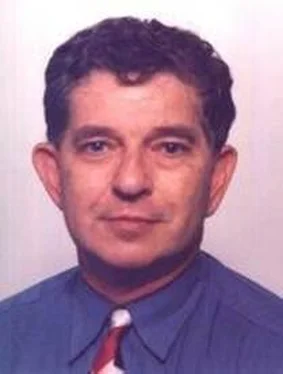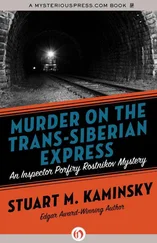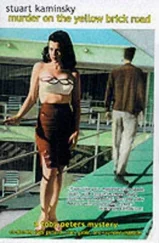It was soon after that night that I began to carry a metal pipe beneath my coat as I followed MacCready through the murky streets.
Several weeks passed and winter was full upon us. Snow fell by the bucketfuls on the stage and in the streets, turning to frozen sheets at the least hint of thaw. The audiences were sparse and there was talk of closing the theater until the weather broke. Everyone was at sixes and sevens trying to prepare for unemployment. MacCready alone seemed to be unconcerned about the possible closing. He needn’t be. One week of his salary could pay the rest of us for a month.
I was already stretched as far as I could be stretched and could ill afford to lose even a week of work. I loathed the thought of giving up my cozy rooms, humble though they were. Not that I spent much time in them being in the theater all day and wandering the streets with MacCready at night. But what I feared most was the loss of MacCready if the theater were to close.
One evening as I lay dying during the second act of an undistinguished melodrama, I felt eyes upon me. Somehow I knew they were MacCready’s. I fought the urge to exalt in that supernumerary death, but I forced my attention inward and died with great subtlety. I was very pleased with how it went. As soon as the curtain rang down and the slain cleared the stage at a run, I made sure that I would pass by MacCready who was, indeed, standing in the wings.
The briefest tip of his chin as I passed sent me into raptures. I had been good, really good, and MacCready had acknowledged my performance. And in the glow of that euphoric mood, I determined to do something to show my gratitude.
The snow was drifting down as we left the theater that night. The sky was clear above the roofs of town; the stars twinkling like diamonds on a black velvet drop. Once again MacCready went to the lowest neighborhood. I stayed farther behind than usual, for I had a twofold purpose.
He led me to a dismal street, the lamps of the streetlights broken into jagged icicles, the gas turned off to prevent an explosion. But the moon was high, casting a magical light over the whole. The night wore on and I was suppressing a yawn when I saw my purpose weaving down the street toward the square. A fine, tall man, with top hat, walking stick, and an opera cloak that swirled about his ankles. A young nob out slumming, alone. It was perfect.
The man stopped and looked about him, then peered up and down the street as if looking for someone. I felt my stomach clench. God, that he should be meeting his friends on this corner. I wanted to shake my fist at the heavens, Lear-style. My blood raced with impatience; the metal pipe weighted down my chest. At last, he took up his perambulation again, and he drew slowly nearer.
MacCready was nearly a block ahead of me now. If this drunken sot didn’t hurry, it would be too late. I pressed into the shadows, my back feeling the impressions of a wrought iron gate that led into the square. I could hear the fellow muttering to himself.
My gloved hand closed around the pipe and drew it ever so gently from my coat. Poised, calm, fully into the part I was about to play, I lifted the pipe over my head. His shadow passed in front of me, and the pipe crashed into his head. His top hat flew to the ground. He staggered and tried to turn, the blood spraying in all directions. I repeated the blow to his back, knocking out his wind, making it impossible for him to cry for help.
There was no time to observe my handiwork, but I was almost certain that he had received a mortal blow, and there was no time to give another. I backed through the gate into darkness and cried out, “Murder, murder by the square.” I only paused long enough to see that I had aroused the attention of several passersby who further sounded the alarm. I raced through the square and exited on the far side, then made my way back to where a crowd had already formed around the fallen man.
And yes, there was MacCready. I could see him well. I could not see the dying man, but I watched MacCready’s hand clutch the air as he followed the man’s progress toward darkness, and my hand followed his. His shoulder twitched, and I knew he was internalizing every detail, and so did I.
A constable came and pushed everyone aside. I was very nearly caught out because I had lingered until the last moment so as not to miss one tiny part of MacCready’s mesmerizing performance. He turned suddenly and I fairly threw myself into the entrance of an ale house to avoid his gaze.
I was sweating beneath my overcoat, and I was covered with blood. I dared not stay where I could be seen, though I craved an audience. I skulked away into the night, assaulted in turns by fear and exaltation.
That was the first of three studies in dying that I arranged for MacCready. And while he was watching death, I was watching him. Breathed as he breathed, lolled my head as he lolled his, sighed just as he sighed.
Over the weeks, his death scenes became more powerful and so did mine.
I had never been adept at learning parts. A line here and there I could manage, but more than a few together left me stammering and sweating with confusion. Ah, but my dying was exquisite. Even the little ballet girls surrounded me with their fluttery eyes and hands and layers and layers of tulle, tittering over the beauty of my recurring death.
And so what are words? Hardly anyone can remember a speech heard the night before. But long after the words are forgotten, the memory of the twisting, writhing, agony of death remains.
I have studied diligently, learned everything I could. Endured cold, hunger, and impatience to perfect my craft. I think I’ve got it right now, the precise amount of quiver at the lower extremities, the languid droop of the hand as it slips from the breast or sword. The little ballet girls agree that my dying is quite as good as MacCready’s.
And so I have invited MacCready for a dinner of oysters in my rooms. And he has accepted. I am so very honoured. I’ve bought a special Madeira wine for the occasion and have popped the cork this very minute. I pour it out and hand a glass to MacCready. He holds it to the light, smiles his appreciation, and takes a sip.
I offer him my best armchair and he sits down. We discuss the theater, and I pour more wine. I’m careful not to drink too much. A host must keep his wits about him.
There’s a knock at the door and I go to open it. It’s the boy from the oyster bar with a platter piled high with oysters. He places it on the center of the table I have pulled away from the wall.
Now here’s the tricky part. The piece of stage management upon which everything hangs. I finger the little packet of powder in my waistcoat pocket. It will take a mere second, if MacCready will only turn his back.
I ask if he would mind fetching the wine bottle from the side table behind me. I only need the briefest moment. But my hand turns stiff and MacCready is back with the bottle before I can extract the packet from my pocket.
My hands are sweating just as they do when I have a speech to deliver. I have lost my chance, there may not be another. And yet, here is MacCready asking where he might relieve himself. I point to the screen which conceals the commode.
He nods his thanks and carries his wine glass with him. I cannot believe my good fortune. My fingers are suddenly nimble as if released from a spell. A mere tap of the paper onto the largest oyster, and I place it directly in front of the place where I intend MacCready to sit. I refold the paper and push it back into my waistcoat just as MacCready returns.
I offer him a chair. He sits. I go to the other side of the table and pull out my own chair, and MacCready realizes he has left his wine glass on the window sill next to the convenience. Would I be so kind as to retrieve it for him.
Читать дальше












